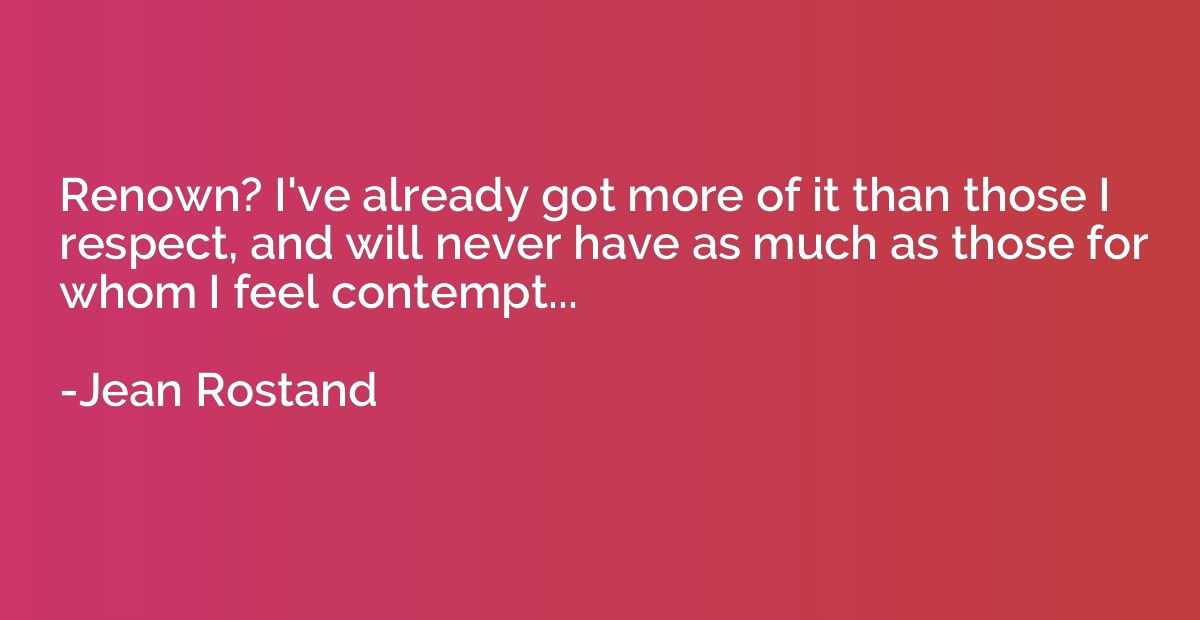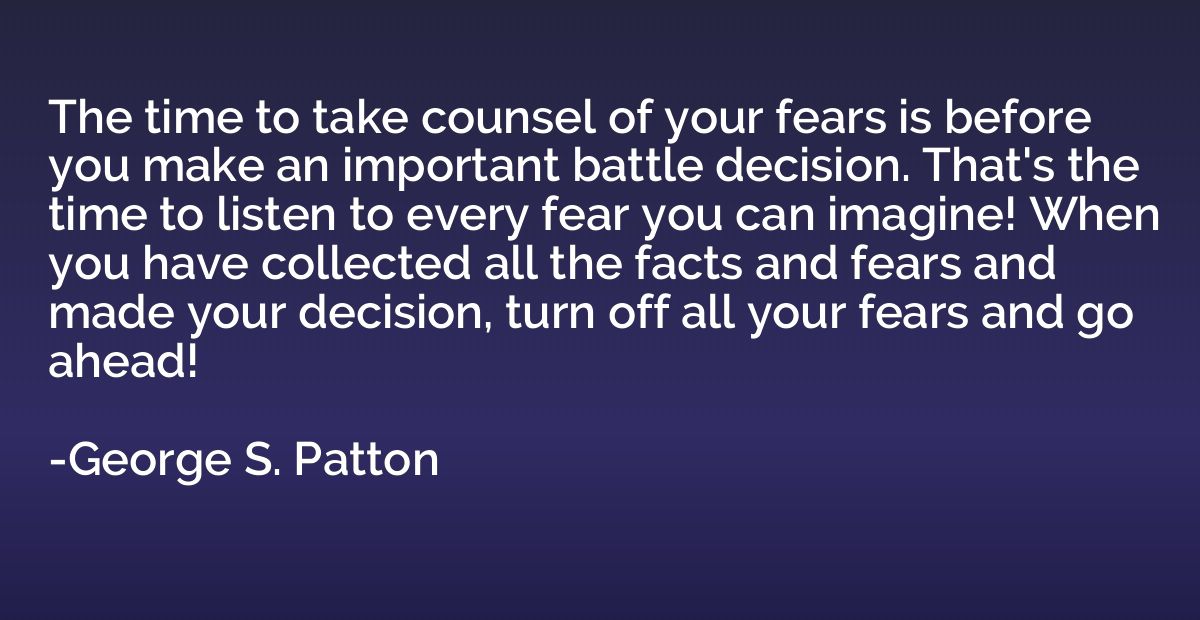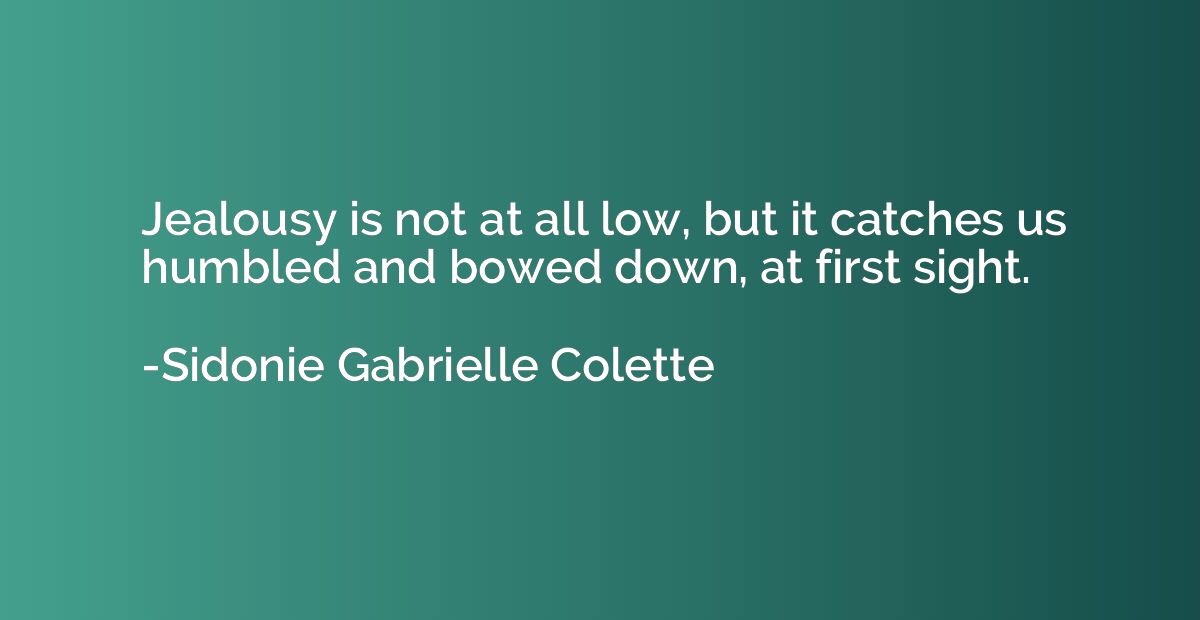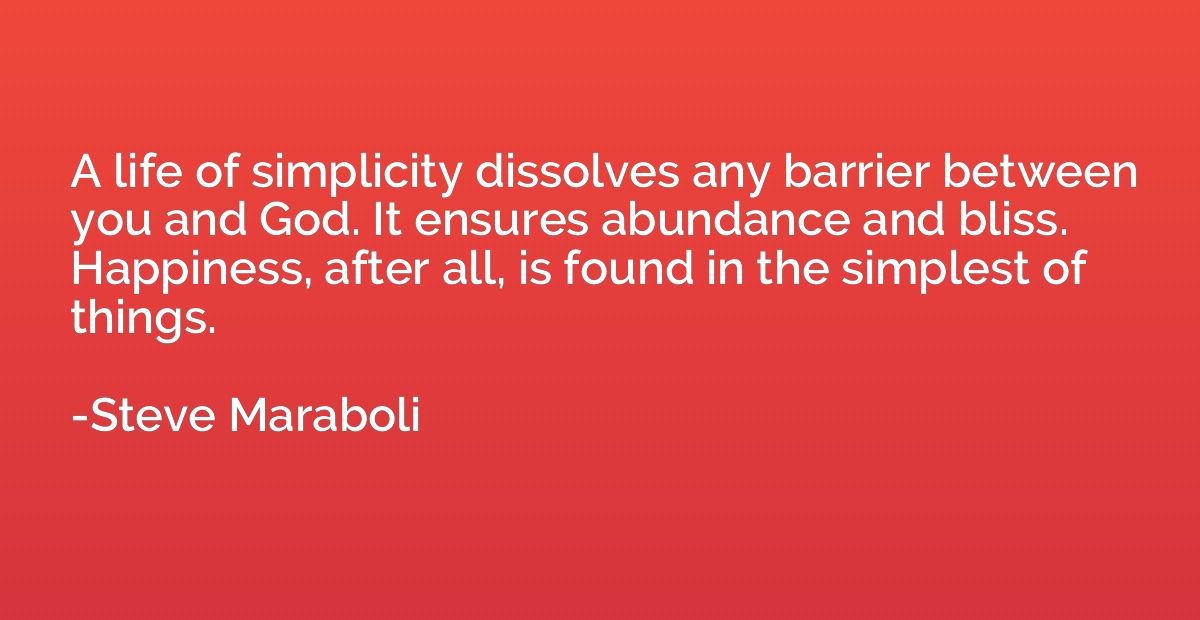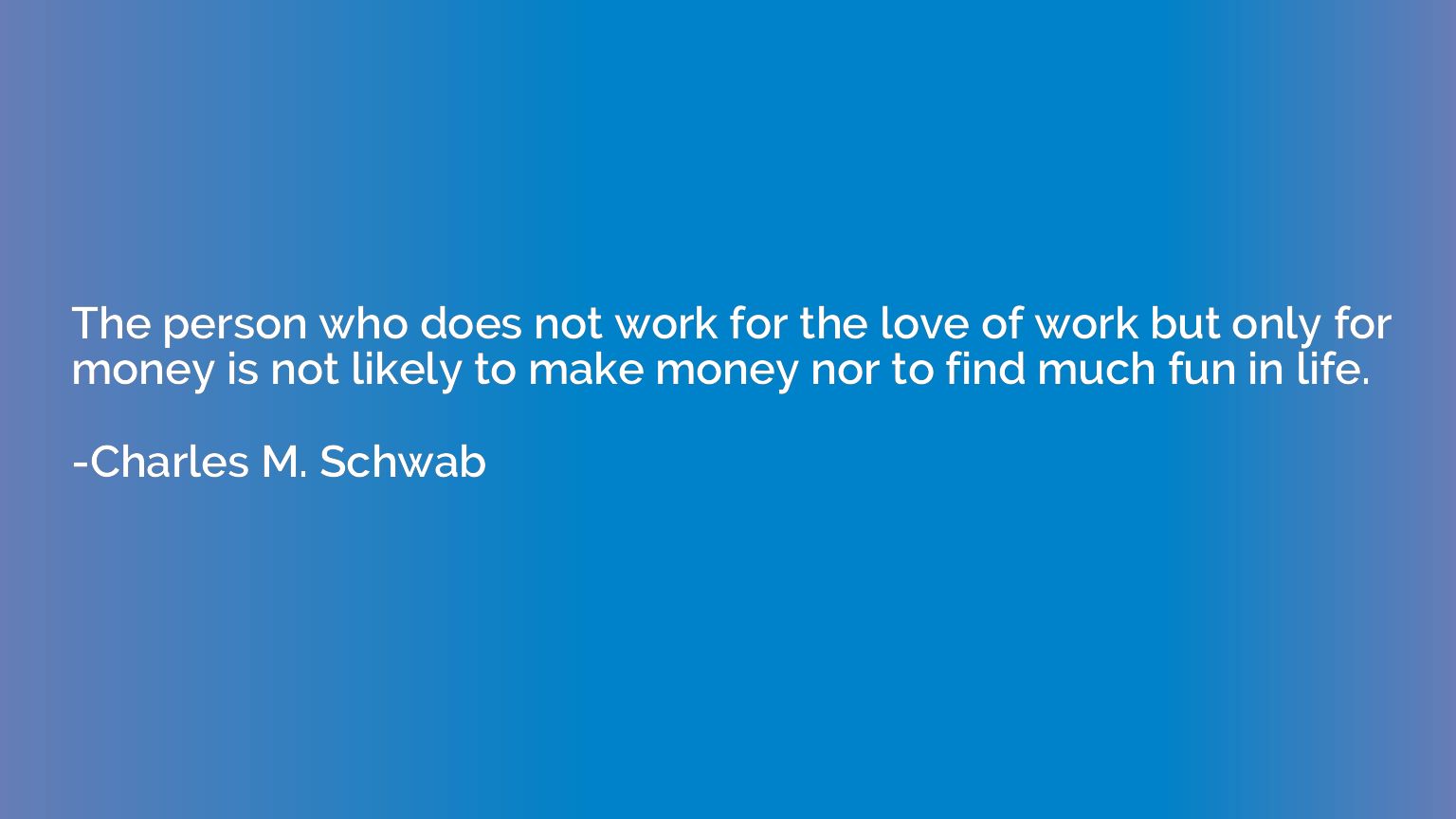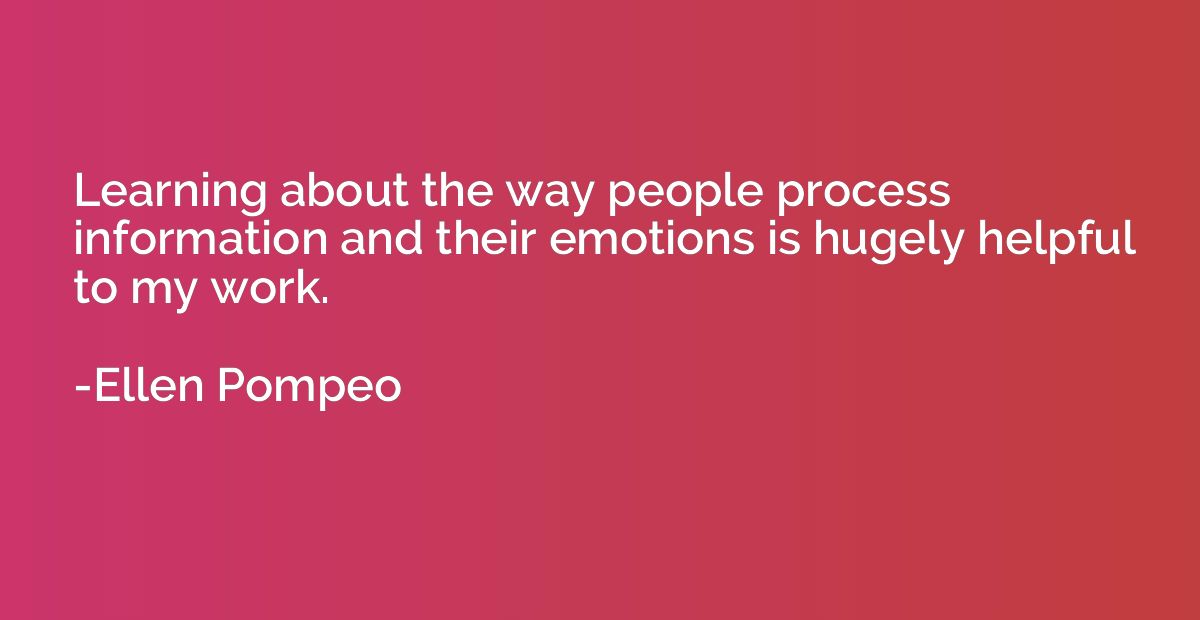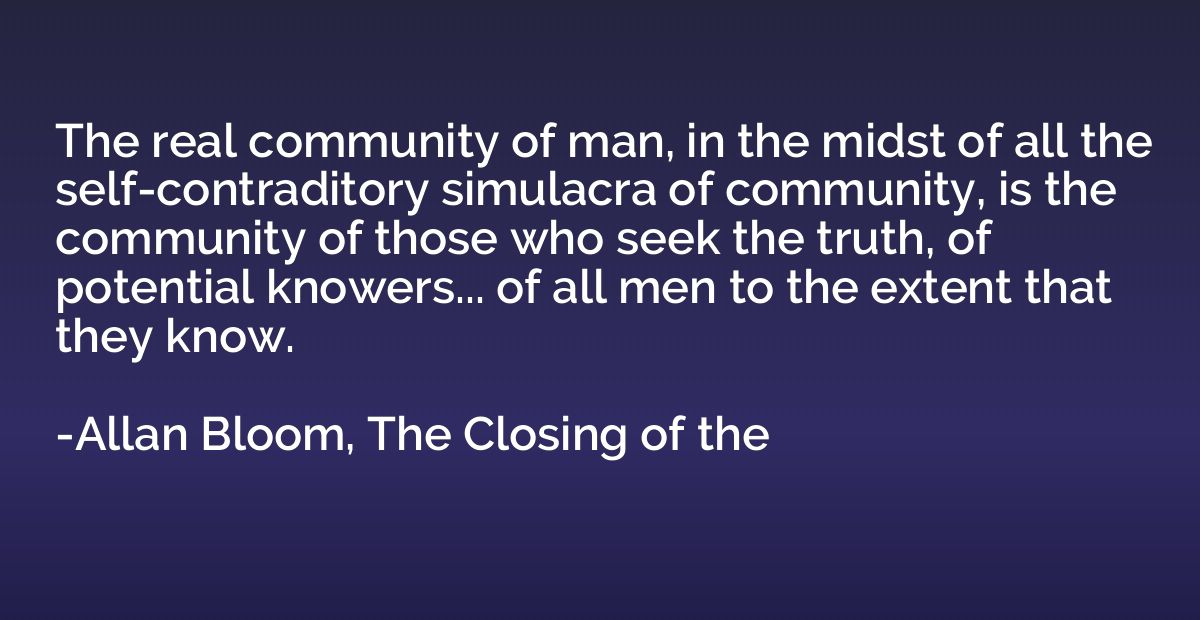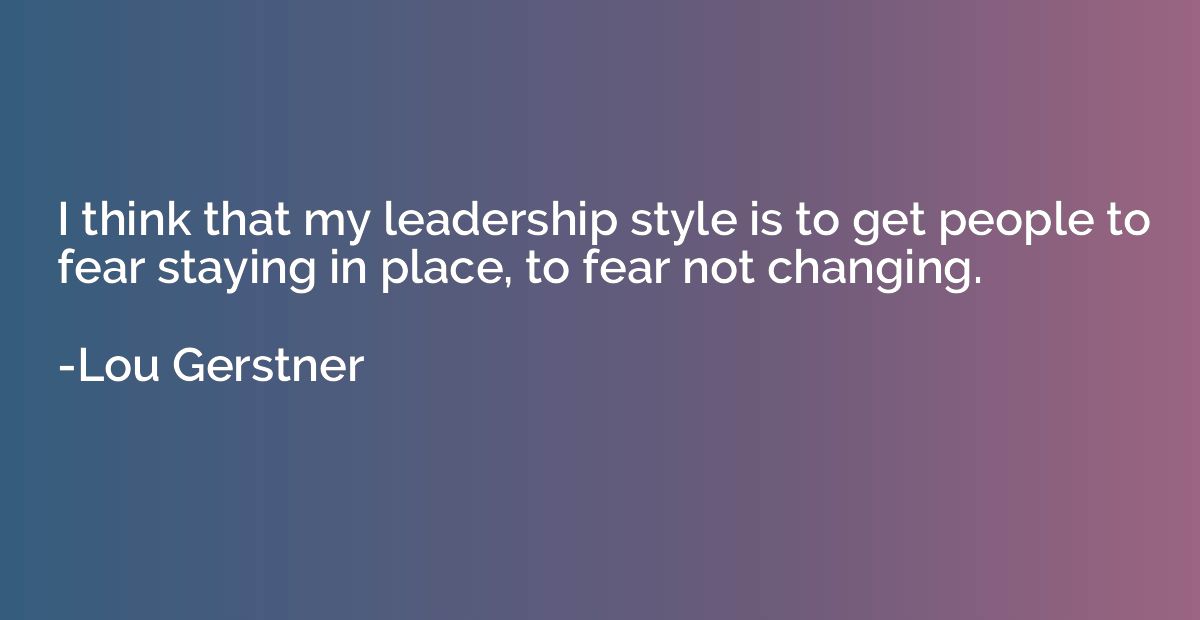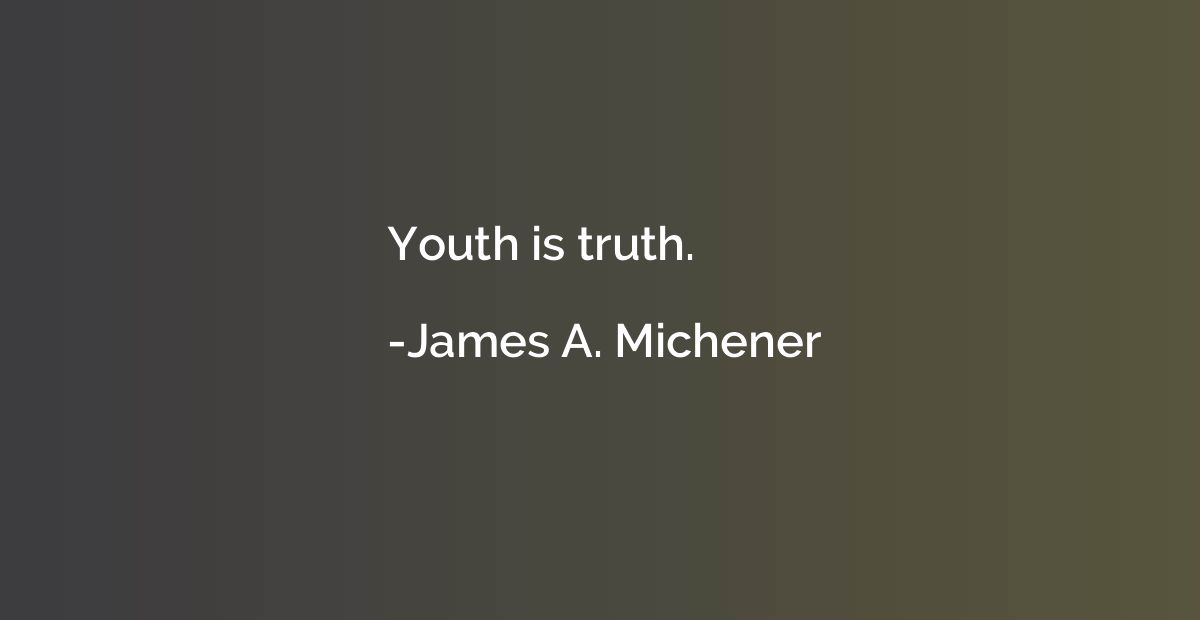Quote by Abraham Lincoln
I am approached with the most opposite opinions and advice, and that by religious men, who are equally certain that they represent the Divine will. I am sure that either the one or the other is mistaken in that belief, and perhaps in some respects both. I hope it will not be irreverent for me to say that if it is probable that God would reveal his will to others, on a point so connected with my duty, it might be supposed he would reveal it directly to me; for, unless I am more deceived in myself than I often am, it is my earnest desire to know the will of Providence in this matter. These are not, however, the days of miracles, and I suppose it will be granted that I am not to expect a direct revelation. I must study the plain, physical facts of the case, ascertain what is possible and learn what appears to be wise and right.
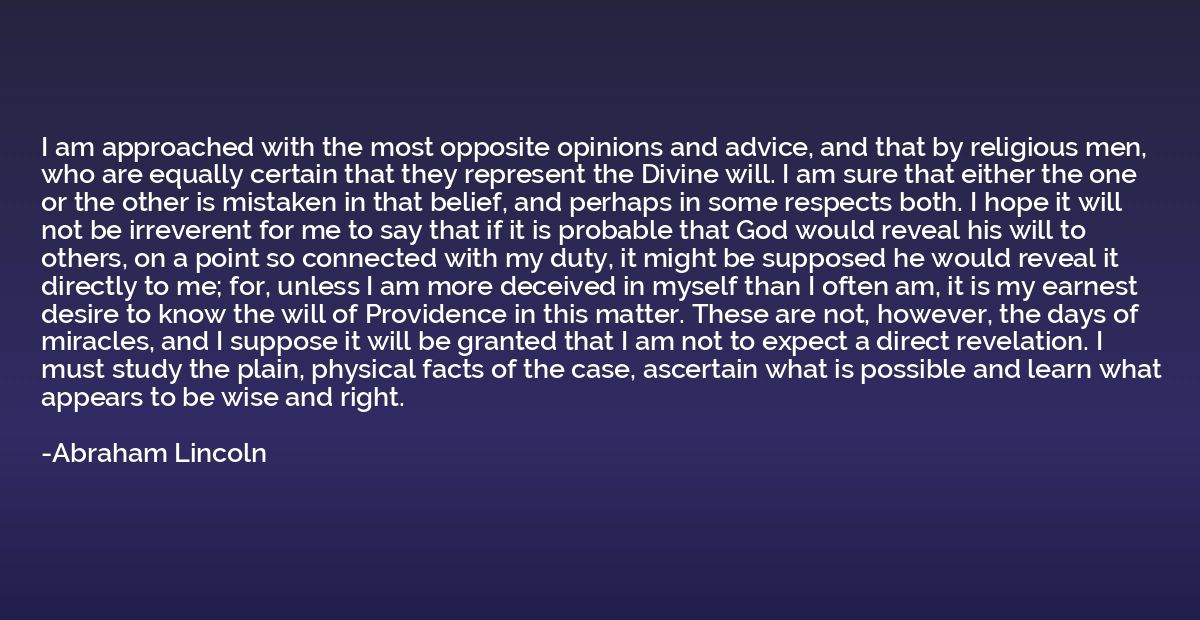
Summary
In this quote, Abraham Lincoln reflects on the different opinions and advice he receives from religious individuals, all claiming to represent the Divine will. Lincoln acknowledges that it is highly unlikely that God would reveal his will to others on a matter so closely tied to his own duty as a leader. Despite his earnest desire to know the will of Providence, Lincoln recognizes that he cannot expect a direct revelation or miracle. Instead, he believes that it is his responsibility to study the concrete facts, consider what is possible, and determine the wise and just course of action based on his own judgment.



